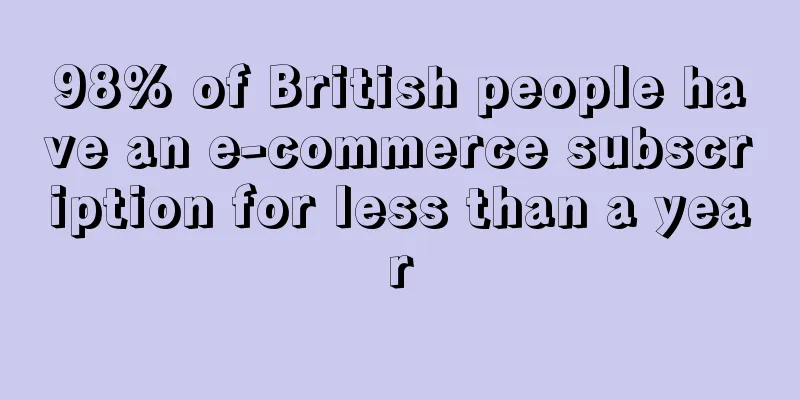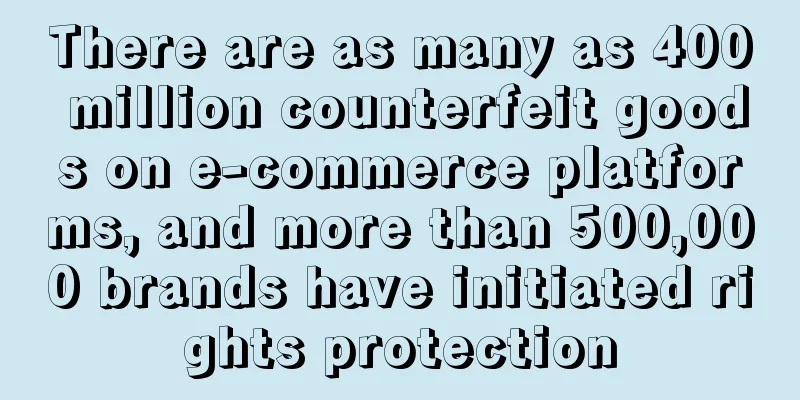98% of British people have an e-commerce subscription for less than a year

|
The UK's e-commerce subscription market has shrunk, with the majority of UK consumers choosing to cancel their e-commerce subscription services within the first year, with the proportion reaching as high as 98%.
E-commerce subscription, as the name suggests, is a combination of e-commerce and subscription, just like subscribing to newspapers and milk before, with a one-time payment and regular home delivery. After subscribing to e-commerce, you will receive products and services regularly.
E-commerce has been booming in recent years, and the subscription e-commerce market has also grown significantly. In Europe alone, there are hundreds of thousands of companies selling products through the subscription model, and the industry scale has reached 1 billion euros. A recent survey of British consumers showed that most British people canceled their subscription services in the first year.
The survey results show that the average subscription period for British people is 5.3 months, and only 2% of British consumers keep the subscription service for more than one year, which means that as many as 98% of British consumers cancel the service within one year of subscription. Among them, shoppers over 55 years old seem to be the most loyal and most likely to subscribe for more than one year.
In addition, 52% of British consumers plan to subscribe to products on a monthly basis, and 38% think the subscription fee is too expensive. When the trial period ends, 18% of users cancel their subscription.
The reason for this change is closely related to the epidemic. Many consumers began to use this function during the epidemic. The closure of offline stores forced them to turn their consumption to online, and daily necessities are often necessary. However, with the opening of offline activities, consumers are no longer so necessary for subscription services.
In addition, some experts believe that high cost and lack of personalization are also reasons for canceling subscriptions. "During the epidemic, subscription services are a very popular way of shopping, but brands should pay more attention to how to keep consumers engaged. After the epidemic eases, this service can no longer meet the needs of the younger generation of consumers." If sellers want to increase customer stickiness through this service, they must be more innovative.
Affected by the epidemic, the consumption habits and preferences of the British are also constantly changing. Sellers in the British market must also constantly adjust their strategic layout according to market demand. U.K. Europe E-commerce subscription |
<<: Capital is still optimistic about the e-commerce market! Wish platform has a bullish outlook
>>: Maersk acquires logistics company B2C Europe to expand e-commerce logistics presence
Recommend
Saudi retail group Alhokair acquires stake in UK e-commerce company VogaCloset
It is reported that the two companies will raise ...
What is Ultracart? Ultracart Review, Features
<span data-docs-delta="[[20,{"gallery"...
Two Sessions Proposal: Let the tax reduction policy benefit cross-border e-commerce
In recent years, China's cross-border e-comme...
SF Express launches the first China-Korea ocean e-commerce express delivery
Yien.com learned that SF Express International re...
What is Jia Wan Jin Department Store? Jia Wan Jin Department Store Review, Features
<span data-docs-delta="[[20,{"gallery"...
What is iSHARE? iSHARE Review, Features
iSHARE was founded in 2018 by Chen Mingyan, a soci...
What is AiKuoGuangxi Intelligent Operation Platform? AiKuoGuangxi Intelligent Operation Platform Review, Features
<span data-docs-delta="[[20,{"gallery"...
Orders from the beginning of the year are scheduled to arrive at the end of the year. Winter sports merchants on Alibaba International Station are experiencing a boom period
Gu Ailing and Su Yiming won the championship in t...
Pretending to resign? Tokyo Olympic Organizing Committee President apologizes for "degrading women" remarks
As the date approaches, the Tokyo Olympics in Jap...
What is Guangdong Smart Logistics? Guangdong Smart Logistics Review, Features
Guangdong Smart Logistics (Guangdong Smart Intern...
Shopee launches second ASEAN Online Sales Day
Shopee, Southeast Asia’s leading e-commerce platf...
Customs strictly checks! A large number of goods may be returned
What logistics situations have occurred recently?...
What is Store Club? Store Club Review, Features
Store Club is a fan marketing platform provided b...
What is eMAG? eMAG Review, Features
eMAG is the largest online retailer in Romania. It...
I'm confused! It's not over after buying insurance? Amazon requires sellers to submit these
As of yesterday, many sellers have submitted insu...









